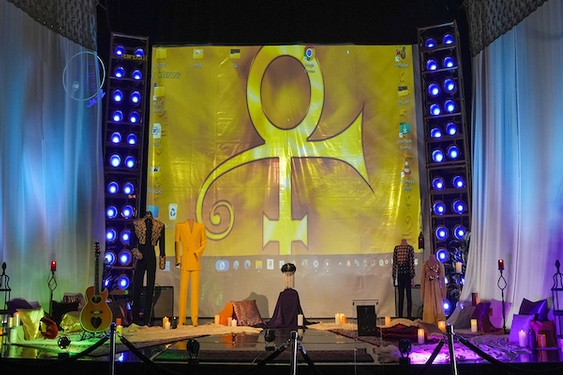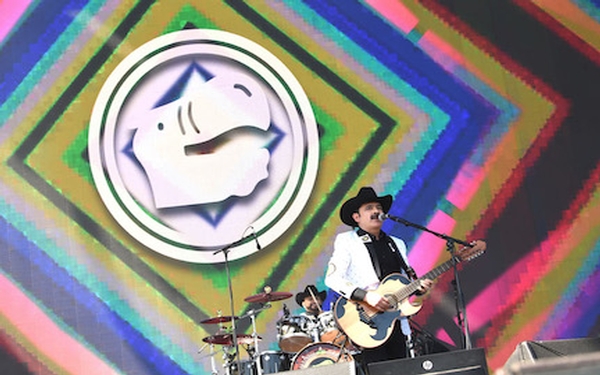“Behind every fortune,” thinks a character in Ridgway's “Down the Coast Highway,” echoing a famous statement of Balzac's, “there's got to be a crime.” Then there's the storyteller's unmistakable delivery, ranging from the deadpan to the deranged, with bursts from his harmonica to fill out the landscapes.
As he warbled his funny, eerie and melancholy tunes at McCabe's, Ridgway was utterly captivating, even when he tuned his guitar or unraveled a microphone cord from his mic stand.
Accompanied by Rick King on guitar, Kelly Murdoch on viola, Bruce Zelesnik on percussion, and Pietra Wexstun on keyboards, Ridgway performed older numbers like “Calling Out to Carol” and “Peg and Pete and Me” alongside “Wake Up Sally (the Cops are Here)” and “King for a Day” from what he called his “latest opus,” 2004's Snakebite: Blacktop Ballads and Fugitive Songs.
The former Wall of Voodoo frontman performed slowed-down versions of his '80s hit “Mexican Radio” and “Camouflage,” his tale of a soldier's encounter with a benevolently belligerent poltergeist in the Vietnamese jungle. He delved into “deeper Tarzana” with “Knife and Fork,” a declaration of love where cutlery has never sounded more amusingly lurid.
His stirring version of “Underneath the Big Green Tree” was among the best songs of the night and probably the best of the songs taken from his underrated 1995 Black Diamond.
Riding along with Ridgway's songs, the audience traveled all over the map, stopping to check out a carnival here, a roadblock there and finally a madcap barbeque, before a grateful Ridgway put on the brakes, offering his thanks to the crowd.










